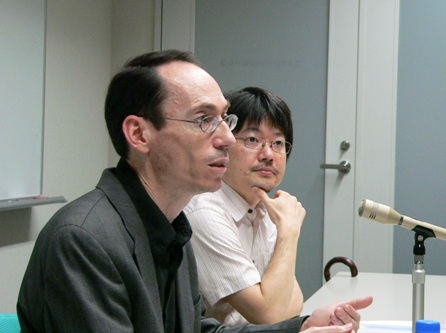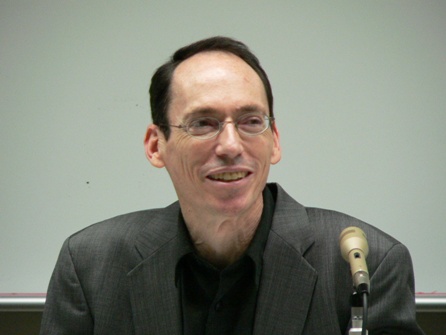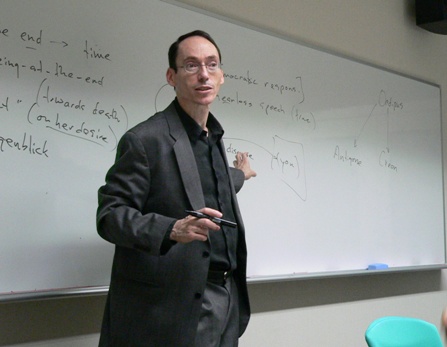Report: Charles Shepherdson "Antigone: The Work of Literature and the History of Subjectivity"
Professor Charles Shepherdson (State University of New York at Albany) has been in Taiwan during the last two years as a National Science Council Visiting Professor and has taught in National Tsinghua University and National Taiwan University. This time, at the end of his stay in Asia, he kindly accepted our invitation and came to give a lecture on Antigone of Sophocles, which was held on July 9th.
His lecture, entitled “Antigone: The Work of Literature and the History of Subjectivity”, forms a part of a re-reading of this tragedy, which has been read by many scholars and critics. However, most philosophical readings have been dominated by a roughly Hegelian schema that opposes two laws and does not sufficiently take into consideration the literary dimension of this tragedy. In his lecture Professor Shepherdson underscored the importance of seizing the experience of this tragedy as such, as that of literature: characters in this play, far from a mere illustration of concepts, have a complex relationship with their own role which shifts in the course of play, with a specific redistribution of traits characterizing traditionally “tragic hero” between Creon and Antigone. It is this whole apparatus, presupposing not only historical, political and ethical framework of the Greek world, but also its esthetical and literary tradition, that produces our experience of this tragedy, which has been articulated in terms of “catharsis”.
Analyzing the opening speech of Creon, and his use of “I” which contrasts strongly with that of Antigone, Professor Shepherdson showed how one can articulate this literary framework of subjectivity, with an extreme sensitiveness to words and construction. Lacan was certainly aware of this literary dimension when he saw the critical moment of this tragedy in a sudden transfiguration of Antigone in the well-known kommos, but without extending this awareness to the understanding of other parts. His lecture led me to wonder if her transfiguration couldn’t be coupled with the changing position of Creon, whose “egoism” is gradually revealed through his pretense to represent the symbolic order, as is shown by Professor Shepherdson.
His lecture was highly thought-provoking, and I subscribe entirely to his claim that we have to be sensitive to literary dimension in the “philosophical” reading of Antigone, especially because I think this literary sensitiveness is precisely what has been essential in theorization proper to psychoanalysis. Psychoanalysis joined contemporary philosophical thought in questioning radically the status of the human being, often defined by finiteness, but from its own viewpoint, when it introduced the concepts of unconscious desire and the Oedipus complex. In psychoanalysis as well as in philosophy, human finitude is often understood in terms of “death”. But from the very outset of its reflection, psychoanalysis has been aware that human finitude implies more than a simple end of existence. Thus psychoanalysis attempted to articulate this other aspect of finitude persistently, proposing a number of conceptual apparatus-first and second “topographies” and a psychological model based on the neuron-system in Freud, and later the concept of “signifying chain” in Lacan-which all are essentially those of “delimitation”. In a sense, every theoretical effort in psychoanalysis is destined to “shape” the limit proper to human being. We know this theoretical effort constantly accompanied the reading of tragedies. Indeed, isn’t Greek tragedy one of the earliest achievements in this “delimitation”, to the extent that it succeeds in describing in every manner human being in a deadlock (or an “impasse”)? In other words, there is more than one way to be “at the end”, and Kobayashi made a point of this in his comments after the lecture, it seems, when he attached importance to the fact that Antigone is at the end not only of her own existence, but also of her family line. Psycholanalytical theorization and tragic imagination have (or should have) in common this sensitivity to multi-layered-ness or multi-plicity of limit.
(Reported by Kazuyuki Hara)









